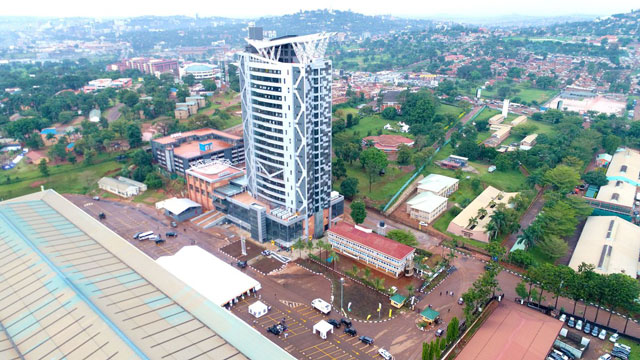
Kampala, Uganda | THE INDEPENDENT | The newly introduced tax measures have generated mixed feelings and fortunes for taxpayers and the general public as a whole. Several tax measures and amendments to the tax laws have been completed and are due to take effect starting July 1, 2021. According to the Ministry of Finance, these amendments are in line with the budget theme of ‘Sustainable Industrialization for Inclusive Growth, Employment and Wealth Creation.’
“The changes in tax legislation this financial year are geared towards government’s commitment to industrialization/import substitution, boosting local production, creation of employment, supporting local and foreign investment, easing the burden of tax compliance and encouraging compliance.”
In drafting the measures, the government had in mind the adverse effects of COVID- 19 on the economy, including the failure by Uganda Revenue Authority to meet the collection targets for 2020/21. And this year, by April 2021, the tax body had realised just Shillings 15.5 trillion or 72%, just three months to the end of the year. Notable among the measures is the Income Tax (Amendment) Act 2021, which was assented to by President Museveni in May.
On agro-processing, the government has repealed paragraph (z) of Section 21 (1) that provided for income tax exemption for agro-processors. This paragraph was giving a blanket exemption to all persons earning income from agro processing, but now it considers the size of the investment made, as well as responding to local content policy requirements.
So, it has been narrowed down to specific sections within the sector and will only be applied under certain conditions as to investment threshold and utilization of locally sourced raw materials, employment of citizens and their earnings met. It also prevents duplication since a similar exemption is provided under section 21(1)(a) of the same law.
The government has added more items to the main strategic sectors qualifying for the ten-year income tax exemption. These include an operator in an industrial park or free zone or anyone who manufactures chemicals for agricultural use, industrial use, textiles, glassware, leather products, industrial machinery, electrical equipment, sanitary pads and diapers.
One of the most controversial changes is on the Rental Income Tax, where the government has capped up to 75% of allowable deductions for expenses and losses incurred in generating rental income. This applies to both individuals and non-individuals. This is aimed to ensure equitable taxation of rental income irrespective of the legal nature of the person deriving income.
“This will remove distortions which arise from capping the allowable deductions for a year of income on individual rental taxpayers, but allows unlimited deductions for non-individual rental taxpayers,” says the response by URA tax education team. It adds that this reform removes the incentive for individual property owners to own properties through companies in order to claim fictitious deductions.
According to law firm, Grant Thornton says this proposal is very likely to draw opposition from property owners, developers and real estate businesses because it presents administrative difficulties since taxpayers shall have to develop policies for apportioning common expenses to each property.
The URA work will also increase as it will be tasked with designing complex forms for taxpayers to account for income, expenses, profit/losses, and income taxes for each property separately. Calculation of Rental Income for Tax could be hard for some property owners, meaning they will either have to rely on the revenue officers or agents.
For one to be taxed, they must have a net income of more than Shs 2,820,000 (that is after allowing them to deduct expenses to the tune of 20%). If a landlord gets a total (gross) Shs 3m a year from his unit, he will be allowed to deduct 20% for expenses, and left with Shs 2,400,000 only, which is below the threshold of 2,820,000.
Therefore, the tax is nil. Assuming the landlord gets Ushs 4m gross, a deduction of 20% expenses leaves Ushs 3,200,000 net, which is above the threshold and therefore taxable. To get a net chargeable rent, the landlord is allowed to deduct the threshold (Ushs2,820,000) from the net income. The net chargeable rent is therefore Ushs 380,000 (above the threshold), on which a 20% tax is charged. This leaves the landlord whose gross rental income is Ushs 4m, to pay Ushs 76,000 per year.
This scenario is based on someone renting out their unit at about Ushs 340,000 monthly, on which they will pay Ushs 6,333. “While this looks fair, it will require a lot of documentation and most of the smaller landlords will find issues with the authorities,” a caretaker of residential houses in Kamwokya Kampala said, adding that they fear for unscrupulous URA officers who might take advantage of their ignorance.
The team leader, tax education at URA, Michael Masembe admits that some URA staff sometimes do not give all or honest information to clients intentionally, to make them make mistakes and get penalized.
******
URN
 The Independent Uganda: You get the Truth we Pay the Price
The Independent Uganda: You get the Truth we Pay the Price


